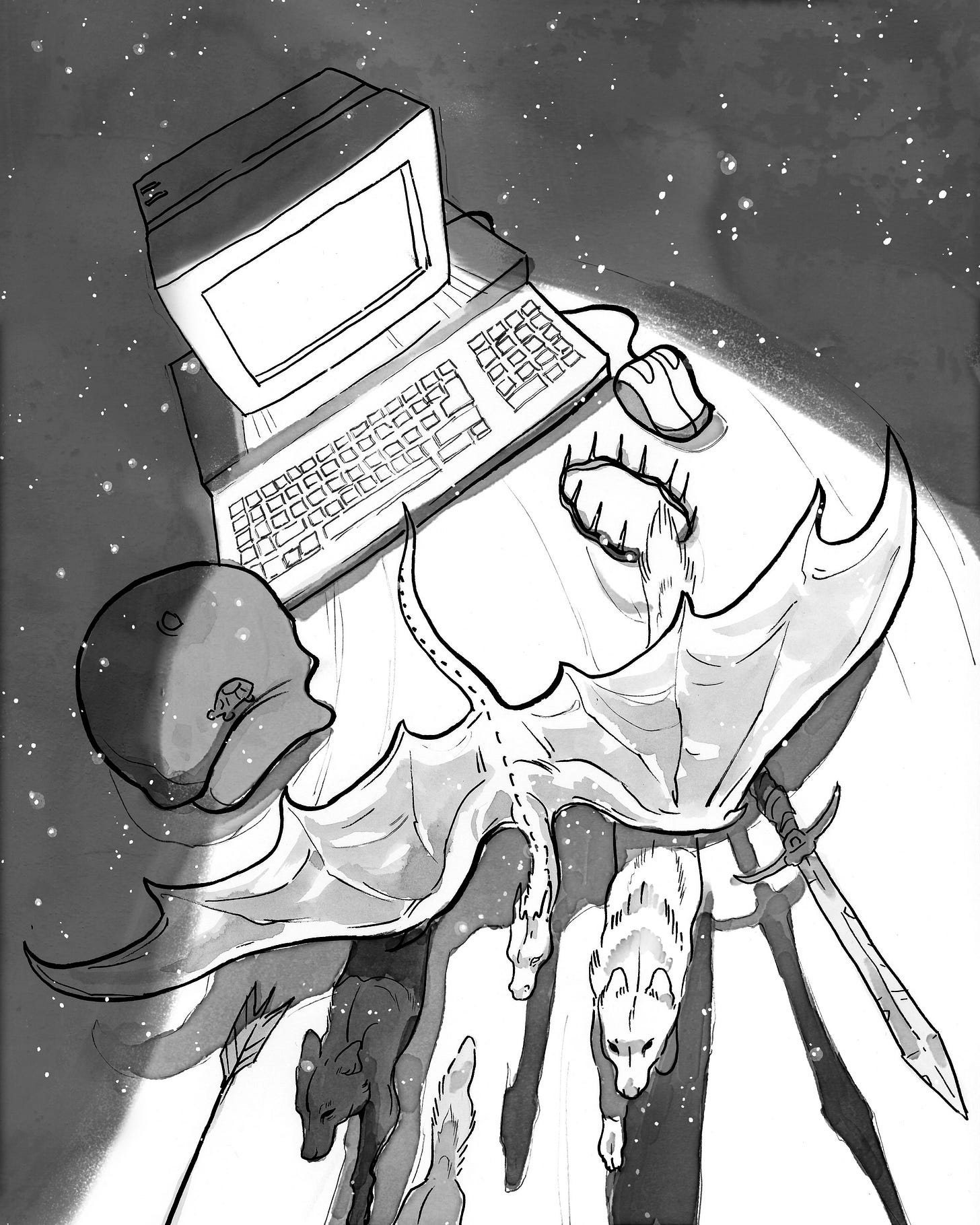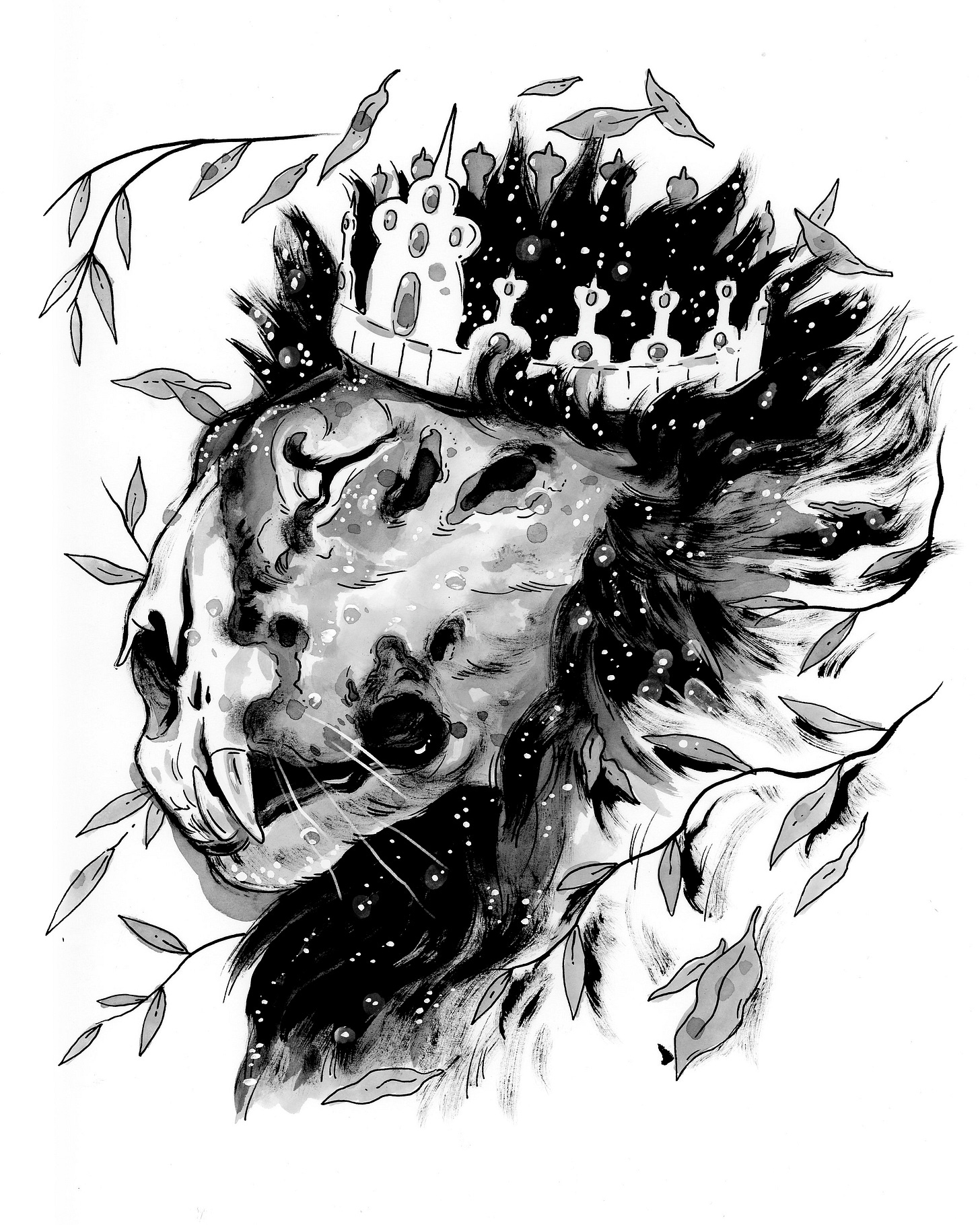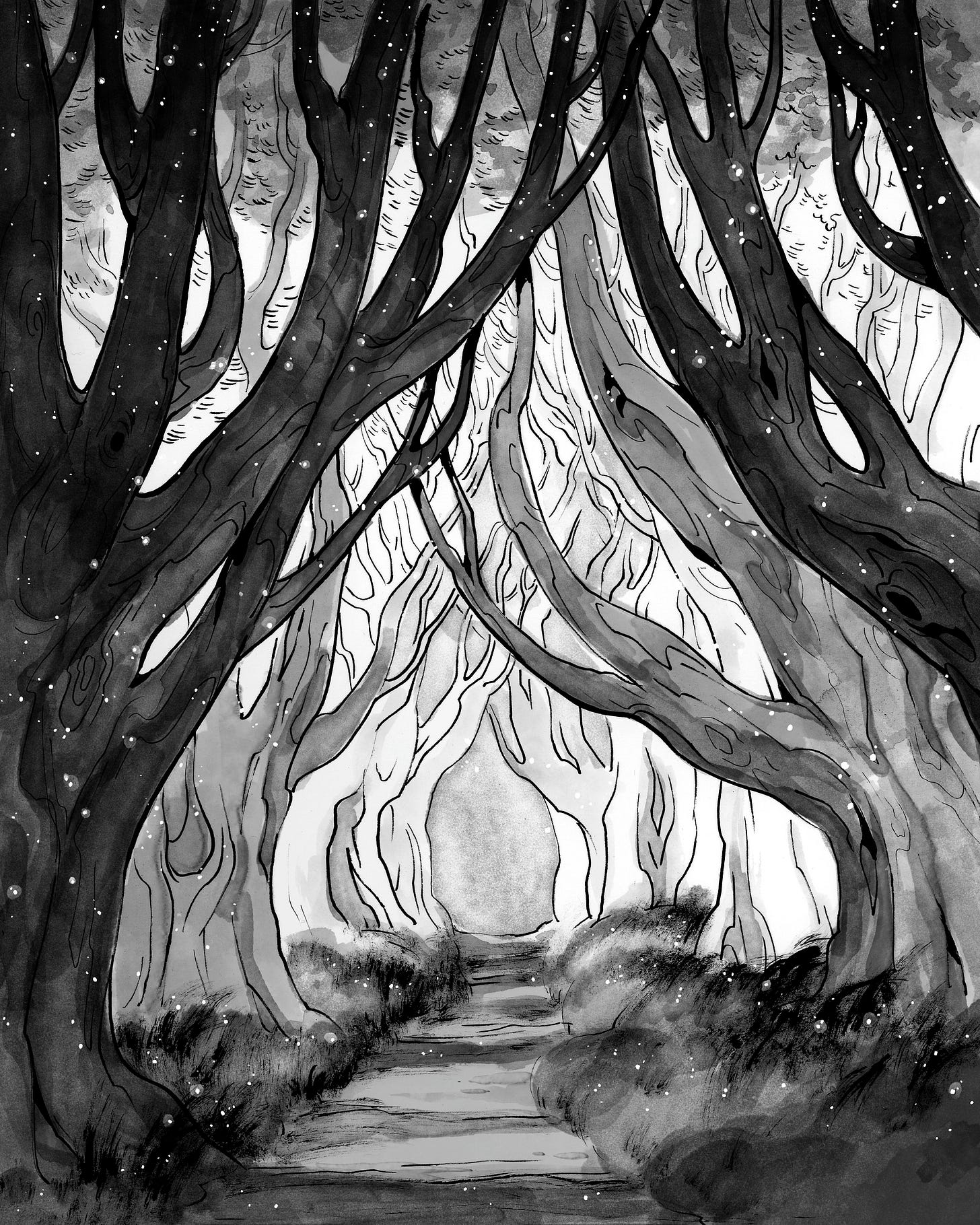Numlock Sunday: Kim Renfro, The Unofficial Guide to Game of Thrones
By Walt Hickey
Welcome to the Numlock Sunday edition. Each week, I'll sit down with an author or a writer, behind one of the stories covered in a previous weekday edition for a casual conversation about what they wrote.
This week, I spoke to my friend Kim Renfro, who wrote The Unofficial Guide to Game of Thrones, out last week!
Kim’s work covering Thrones is unparalleled, she followed the show from when it was a craptacular pilot all the way through when it became a genuine phenomenon, and her book goes deep into how and why the show became the cultural force that it did.
We spoke about how Game of Thrones helped her break into media, how it bridges a gap between two completely different eras of television, and what the future looks like for TV in a post-Thrones world.
Kim can be found at Insider, on Twitter, and the book is available wherever books are sold.
This interview has been condensed and edited.
Walt Hickey: Why did Game of Thrones blow up?
Kim Renfro: I actually open my book with talking about the Red Wedding, and I really think that that was when everything changed for the show. That was the moment that the curtain fell between the obsessive book readers and the obsessive show watchers. Book readers had been really, really careful online to not spoil that the Red Wedding was coming. Ned Stark's death, yes, was a shock. But like the Red Wedding was a triple gut punch. I think the moment when the rest of the world got clued in on that, a big overtaking of narrative, was really what changed the game.
You had entire bars freaking out about it. Television is so rarely a live phenomenon these days outside of sports. But that really was something.
Not everybody watches Game of Thrones, sure, but I bet you everybody knows the term "red wedding" now, even if they don't fully know what that means. They know that something happened called the Red Wedding and that it upset a lot of people. I don't think that we're ever going to get a show like Game of Thrones again that can do that to millions of people at the exact same time. Now everybody watches TV on their own schedule.

Atria/Simon & Schuster
Just like from the distribution perspective, it did kind of ride the last little bit of wave of peak TV.
What I talk about in the book is how Game of Thrones started just before the "peak TV" era. In the years since we've had Breaking Bad, we've had Mad Men, we had all of these prestige shows. And it started just around then. And then it ended at a point where now streaming has completely taken over the way that we watched TV. It's bridged this change in the way that the world consumes television. That's why I really don't think that there's going to be another show like it that commands an audience that large at the exact time, every Sunday. Sure, millions of people are going to sit down and binge Stranger Things season four or whatever, but they're not all watching it and talking about it at the same time. They're probably finishing a season over a few days, versus Game of Thrones when it takes over the news for months. TV just can't do that anymore.
You take readers episode by episode and find things that other folks have missed.
I focus in on a couple of different aspects of production. There's a whole chapter where I explained the score and the music that composer Ramin Djawadi made for the show. I interviewed him a few years ago for Insider, so you get pieces of that in there.
I talk about all the locations for the show, I talked to a woman who works for the Screen Tourism Bureau in Northern Ireland, because they literally had to make up a new division of their tourism industry just to handle the influx of people who want to come and visit all these sets. Game of Thrones has literally changed the economy of an entire country.
I have a whole section focusing on the costumes, I specifically chose three characters whose storylines are really, really well told just through what they're wearing, Daenerys, Cersei and Sansa, and I go season by season on how the things that they're wearing are literally telling their story through threads, which is cool.
I picked one episode for every season to do a mini-essay on why it's the standout episode of that season. Then I did one of my signature things for Insider which was always the details that you might've missed. I go one episode at a time and I just picked my favorite detail from that episode to explain. Anyone, even if you're someone who's watched Game of Thrones a few times through, will learn things in this book that they might not have!

Devin Elle Kurtz
What motivated you to kind of go into book format?
I set out to compile all of my favorite things about Game of Thrones, and explain them in a much lengthier way than I was able to when it was just a couple articles at a time. I start out the book placing you in the phenomenon of Game of Thrones, but then I backtrack to talk about how George R.R. Martin himself came up with the story, and then how he and HBO wound up getting in cahoots with one another, through the meeting between him and the showrunners David Benioff and DB Weiss, and then how Benioff and Weiss then took his story and tried to make their own version of a pilot, which was a disaster in their words. They've called it "a piece of shit" in previous interviews. I talk about that pilot and how it was like almost a near miss, how we almost didn't have Game of Thrones.
How did that happen? Why was it so bad?
I think like anyone who's read Martin's books knows that they're very big and sprawling and there's this massive cast of characters. Their first attempt at the pilot just really failed at condensing everything into a scope that was easy to understand right away. They finished filming the pilot, they showed it to a close group of their friends. They talked about this a lot in a Vanity Fair interview a few years ago. The episode ended with Jaime Lannister pushing Bran out the window. And nobody in the room understood why that happened. Like they didn't even understand that Cersei and Jaime were brother and sister, let alone that they were committing royal adultery. So thankfully HBO said "this isn't working as it is, but go and do reshoots and like fix this up and I think that we have something to work with here." They went and they refilmed everything. They threw in a lot of exposition, now if you watch the pilot, you'll see like Jaime Lannister take off his helmet and you hear Arya's voice in the background going, "That's Jaime Lannister! The Queen's brother!" just spoon-feeding of information, like a title card that says "Winterfell" when you see Winterfell for the first time. They just had to do a better job explaining the geography and the relationships between people in a way that George doesn't have to in his books.
How does someone even become an expert on Game of Thrones?
The year was 2011. I had heard of this HBO show that was coming from friends of a friend at a party. We were nerding out and talking about Lord of the Rings and they were like, "if you like Lord of the Rings so much, you're going to love this HBO show." As soon as the pilot came out, I torrented it on my laptop. (Sorry, HBO!) As soon as I saw that it was based on a book series by this dude George RR Martin, I closed my laptop, I went and bought all four books — there were only four out at the time — and just devoured them. I've never become so instantly obsessed with something before in my life as I was with A Song of Ice and Fire.

Devin Elle Kurtz
People will forget Game of Thrones was fairly small at the beginning, there were only three podcasts about it, which is insane in retrospect.
Jump to 2014, I had graduated college and I got a temp job at this company called Business Insider. I was just an office assistant, I would restock the kitchens and supply computers and stuff. One of the editors, Gus Lubin, was chatting with me one day and Game of Thrones came up and next thing I knew I had spouted off like 20 minutes worth of theories. He said that there wasn't really anyone who was covering Game of Thrones in depth for the site and he told me that I could write about the show if I wanted to. So in my spare time I started just drafting articles for Business Insider to run. They all started doing pretty well, and that's what led to me asking if I could become a full time reporter for the company instead of an administrative assistant. By 2015 I was a full-time culture reporter for Tech Insider and Game of Thrones was my baby.
As the unofficial guide, you told the story without necessarily the influence of people who made it. Having seen how the last season was received and how the Emmys worked out for them, what's your read on the legacy of Game of Thrones?
Regardless of how anyone feels about the final season, I don't think that you can try and argue that Game of Thrones did not change television, or that it's not one of the most ambitious and game-changing series to ever land on a TV screen. I wrote as much of the book as I could before the final season, but obviously I couldn't finish it before I knew how the story ended.
I was working on the final chapters in the book as the final season was airing, which was really overwhelming, because it's very hard when you're in a moment like that — the fandom was roiling, it was a peak of discussion and debate, people were upset and defensive — to try to understand how that show is going to be perceived in history. I do explore why is this show so intensely debated, and why were people so upset?
I think that that's a very complicated question. If you ask someone whether they loved or hated the final season, I think that a lot of the conversation gets very black and white these days, where you either feel like you loved it and need to defend it, or you really were upset with the choices that were made and you feel like it completely soured your experience of watching the whole show. Both of those things are super fair! I'm somewhere in the middle, where there were things that I loved about the final season and there were things where I was like sitting there scratching my head being like, "why did this go the way that it did?" It's a complicated question as to why.
I think that Benioff and Weiss set out to adapt books. They loved George R.R. Martin's books. They wanted to bring those characters to a screen. They didn't sign up to make their own version of his story. They thought that they were going to have a roadmap all the way through. I think that as soon as they ran out of book material, they were sort of doomed to this divisiveness, where people were immediately going to try and break apart whether or not the story that they were telling was faithful to George's mode of storytelling or whether it was their own. It's complicated.

Devin Elle Kurtz
Martin’s still got two books coming down the pipeline, ostensibly. Do you have any insight on what's going on in his head these days?
All I can say is that I do think that he's going to finish them. I think there are a lot of people who are very pessimistic now about his progress. I don't think that there's a world in which he doesn't actually finish them, because this is his baby. He's just as bummed out about the progress of things as anyone else. He's written a lot of The Winds of Winter, so I no longer have any sort of optimism of when it's coming. But I do think that it's coming and I think that that will be a really interesting time for the fandom, because we're going to find out so much more information that the show completely cut.
You mentioned the fandom, you were on the boards in 2011, since then things of that have gotten different and changed and expanded and grown. What's your relationship with those folks and how have you seen them grow and change over time?
I've just had the time of my life becoming more and more embedded in this community. This is the first time that I've had something that I've loved so much that I've become an active participant in. Before this I was always a private fan of things. Like the Harry Potter books, I love and have read those more times than I can count, but I was not the person going to conventions, or on boards and forums and such. It's been really, really cool for me to meet the people who are moderators on the subreddit that I used to obsessively lurk and read on.
There's an annual convention called Con of Thrones, which is all Game of Thrones and now I moderate panels for them, and it's honestly such a blast. There are so many fantastic people in this community and everyone has their differing opinions on the show, especially the final season, but at the end of the day, it's really, really cool to be around people who all just love the thing that you love so much. As I was writing the book, I just kept hoping that I was somehow contributing back into this community that has given me so much. I would not have the job that I have today if it wasn't for Game of Thrones, and for stuff like the subreddit that gave me so much information and stuff to work from.
Where can people find it and what can they expect?
The Unofficial Guide to Game of Thrones is available in every single bookstore? It's also an audio book, so you can listen to it on Audible. It's sold through Atria/Simon Schuster. So call your local bookstore, go to Barnes and Noble, Amazon.com, wherever.
I hope that when you read it, you learn something that you never knew about the show before, or just have a great compendium of all the best things that you love about this epic fantasy series.
If you have anything you’d like to see in this Sunday special, shoot me an email. Comment below! Thanks for reading, and thanks so much for supporting Numlock.
Thank you so much for becoming a paid subscriber!
Send links to me on Twitter at @WaltHickey or email me with numbers, tips, or feedback at walt@numlock.news.




